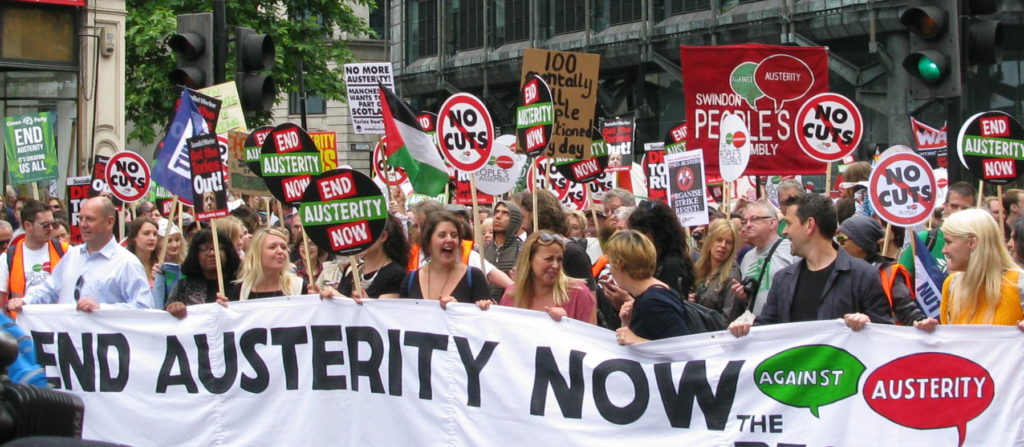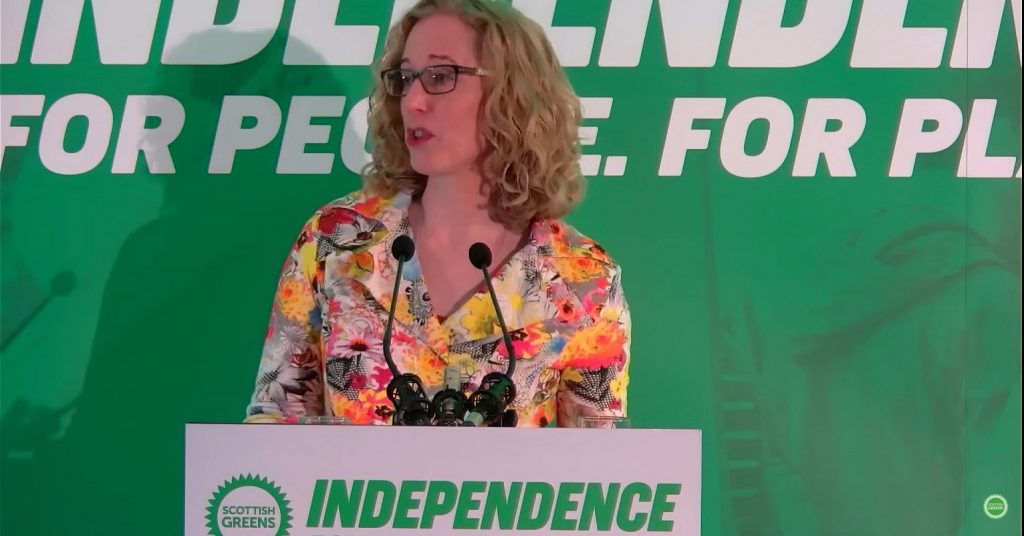Is this the end of capitalism? A series.

This article is part of Bright Green’s ‘End of capitalism’ series- if you’d be interested in contributing something to this series, drop us a Facebook message or email ‘front-desk@project1-hvznj9e2s8.live-website.com’
Austerity.
Neoliberalism.
Capitalism.
Over? Broken? Crumbling?
The dire consequences of neoliberal policy (including austerity) have long been felt by the poor, the young and the marginalised, but now even the rich are finding their effects hard to ignore. Global growth rates stumble well behind what they were in the 60’s and financial crises are more frequent, the latest of which we still haven’t recovered from. Wages are stagnant, jobs are precarious or insufficient or threatened by automation, inequality (and all its attendant social, political and economic problems) is rampant and growing, and the very planet itself is wracked with a growing list of increasingly dangerous ecological catastrophes.
This profound economic dislocation is starting to translate into a more tumultuous political landscape. Trump, Brexit, Corbyn, Sanders, the rise of the far right and the far left in Europe- all have been linked by commentators to the woes of neoliberalism. Paul Mason summarises the reality: “For many people in developed countries, there is no coherent story of how their lives will get better.”- the economically intolerable is translating into the (previously) politically unthinkable. Yet this is met by utter incomprehension by many centrists and Third Wayers, with them seemingly blaming anyone but themselves and the system they defend for their declining electoral viability.
In these economically and politically tumultuous times, there is a growing awareness that neoliberalism is in dire straits, and critiques are coming from across the political spectrum. Yet some go further. Some predict that capitalism itself may be about to crumble.
This has been predicted before. Most notably, the early 20th century was replete with proclamations of the end of capital being nigh. Revolutions, economic crisis and war rocked the globe and socialist values were born out (imperfectly) in domestic policy in both America and Europe. Yet during this time the groundwork for a revitalised and even more deadly form of capitalism was being laid in the work of the Mount Perelin society, the intellectual powerhouse of what was to become neoliberalism. By the 70’s, capital had reformulated its approach and launched a deadly assault on social democracy. By seeing a demise in capital as possible, are we simply falling into the age-old trap of mistaking a new form of capitalism for a new form of economics entirely? Are we mistaking growing pains for death throes? Illness for fatality?
In his latest work ‘How Will Capitalism End?’, theorist Wolfgang Streeck argues that, this time, capitalism cannot solve this crisis, because there isn’t just one. He argues that capitalism isn’t dying because of sustained opposition, but because of its very success, from having successfully muted its own opposition. Whilst arguing that capitalism is dying from ‘a thousand cuts’, he centres on 5 key areas where capitalism is ‘dying… from an overdose of itself’: ‘stagnation, oligarchic redistribution, plundering of the public domain, corruption and global anarchy’.
Other authors, such as Paul Mason, have highlighted changing technology as a major headache for capitalists, as digital advances seriously undermine the ability to generate profit (currently only forestalled by state-backed guarantees of monopoly rights over digital content). Many green thinkers focus on how the obsessive growth model that fuels capitalism is heading headlong into environmental limits.
Even if we agree that capitalism is ending, this tell us nothing about what comes next. Streeck throughout his work refers to the ‘post capitalist interregnum’ where capitalism has sort of collapsed but nothing has arisen to replace it- a world of failed social institutions and an inability to combat social issues, a ‘disintegrated, destructed, undergoverned post capitalism’ era, an integrenum of no clear social order, that depends on culture and the ‘opportunism’ of individualised individuals to uphold some sort of capitalism, rather than structural and institutional processes.
This is one vision of what awaits us if capitalism ends but the left is not ready- if capitalism collapses without a coherent, compelling and calculated alternative to replace it, chaos will ensue. Yet at perhaps a time when the planet and people need a political counterrevolution more than ever, it seems the least likely to emerge, or at least it did until recently. Declining political engagement, fragmented social movements, the ill fate of social democratic parties across Europe and their lurch to the right… whilst it is dangerous to hark back to imagined golden ages, political participation has in recent decades been supplanted by an individualised consumerism and a growing alienation from stripped back states. There are counters to this trend- reengagement with party politics in the UK prime among them, but it is far from certain whether this is a long-term trend. A truly bottom-up revolution requires an engaged and active citizenry- how the left organises now, in the next few years, could determine the course of human history for centuries to come.
The Corbyn and Sanders’ projects are the most readily available examples of what this could look like, yet both, whilst pulling off incredible feats against the odds, have, for now, failed to attain office. This is partly due to the resources of the Establishment (not all of whom are in different parties to these figures) and the lengths to which they will go to prevent systemic change to the political system. This in itself requires deep introspection by those wishing to see a transition to a new sort of economic and political system, asking ourselves uncomfortable questions about how we challenge and overcome this reality. But it is also undoubtedly to do with our movements’ own failings too- even out of those who voted for Sanders and Corbyn, they’ll still be large numbers that are not by any means signed up-socialists ready for a revolution.
So, the global economy is in trouble and politics is… interesting- this much we know. What isn’t perhaps certain is what this means in the long term for capitalism, and what role the left can play in shaping this future.
The series that this article is launching will span a number of angles, some looking at the structural, systemic causes for the decline of neoliberalism, and potentially capitalism itself. Others will discuss strategy, whether from a party or a broader perspective. Others will assess what needs to come next, prescribing a more positive vision of what needs to replace capitalist social relations and modes of production. Some will take as given that capitalism is about to, or at least should, end- others will not. All, however, will seek to develop our understanding of how we have come to where we are and where we might, just might, be going.




Lets not forget that capitalism is both hugely successful and also dangerously unstable and grossly unequal. Socialists don’t have the necessary love/hate relationship with capitalism and that means that we have no idea about how to take its best features forwards . . . don’t forget that right now we’re currently using IT hardware and software that have been developed and endlessly refined in a competitive consumer market place by highly effective capitalist corporations!